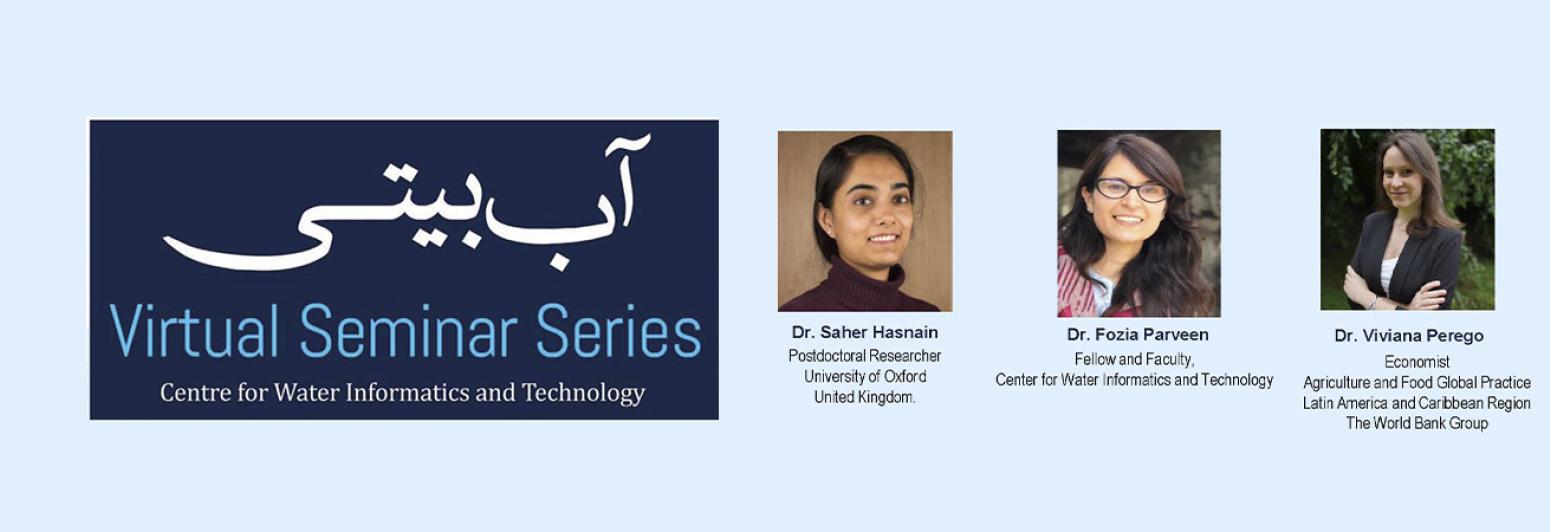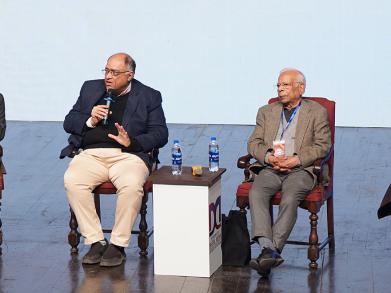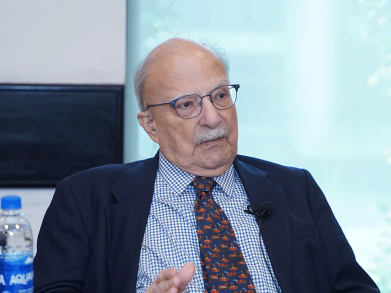
February 3, 2021
Providing food for over 9-10 billion people by the year 2050 is a daunting challenge- one that smallholder farmers play a pivotal role in solving, locally as well as globally. The advent of COVID-19 has further exacerbated an already fragile and vulnerable food system; a system that is already facing many threats due to climate change. The disruptions in the supply chain has reduced food availability and resulted in food loss, substantially impacting those already faced with poverty and hunger. The current food and nutritional security are not sustainable and demand a drastic transformation of global food systems.
Join us as we converse with two young professionals who have been working in this sector for Pakistan, as well as in the Latin American and Caribbean region. Dr. Saher Hasnain from the University of Oxford and Dr. Viviana Perego from the World Bank Group will speak with Dr. Fozia Parveen of WIT, School of Science Engineering (SBASSE), LUMS, to understand the system, highlight the future challenges, and discuss the possibilities of paving a path to improve the system.
Date: February 3, 2021
Time: 3:00 - 4:00 pm (PST)
You can watch the session live on the WIT, SBASSE and LUMS Facebook pages.
Profiles of Panelists
Dr. Saher Hasnain, Postdoctoral Researcher, University of Oxford
Saher Hasnain is the Research and Community of Practice Coordinator for the Foresight4Food Initiative based at the University of Oxford’s Environmental Change Institute. With the Foresight4Food Initiative, she is focused on developing a mechanism to better understand and synthesise key trends and possible futures in global food systems and to support informed and strategic decision making between food systems stakeholders. Formally trained as an environmental scientist, she has conducted research on food systems and environmental health in urban areas. For her doctoral research at Oxford, she examined the influence of factors like energy system disruption, urban design, and regional and global food system transformation on food environments in urban Pakistan.
Dr. Viviana Perego, Economist, Agriculture and Food Global Practice, Latin America and Caribbean Region, The World Bank group
Dr. Perego is an Economist at the World Bank, where she works on themes related to agriculture and food systems, rural livelihoods, and competitiveness. Her current projects focus on market access for smallholder farmers, the labour market integration of vulnerable populations, technology adoption, and food systems' resilience to climate change. She holds a DPhil degree in Economics from the University of Oxford, where she graduated with a thesis on the drivers of development in open economies. Prior to joining the World Bank, she has collaborated with institutions such as the ILO, UNICEF, and the Bank of Italy, as well as leading research centres such as J-PAL at the Massachusetts Institute of Technology and the Centre for the Study of African Economies at Oxford.
Dr. Fozia Parveen, Fellow and Faculty, Centre for Water Informatics and Technology, Syed Babar Ali School of Science and Engineering, LUMS
Prior to her work with WIT, Dr. Fozia Parveen completed her DPhil in Engineering Science from the University of Oxford in December 2018. She completed her BS and MS degrees in Environmental Sciences from Fatima Jinnah Women University and National University of Science and Technology, respectively. Dr. Parveen’s lab research has focused on water and wastewater treatment using advanced membrane technologies, its microbiology and application. At WIT, she is working on aquatic microplastic pollution and reducing plastic pollution from environment.



















